Current Research Projects
We conduct applied research dedicated to the study of pest and beneficial arthropods associated with temperate tree fruit cropping systems. We harness the tools of chemical and behavioral ecology, developmental and environmental modeling, landscape ecology, and plant-insect interactions to better understand arthropod communities and population dynamics in the context of climate change and invasive species in the Great Lakes region.
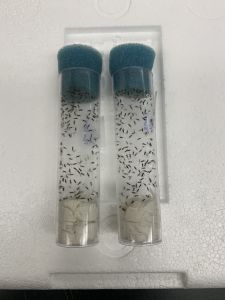
This project includes the development of a risk model tied to tart cherry phenology (Wilson et al. 2022), exploring the use of attract and kill methods (with J. Huang), and a survey for native and exotic parasitoids (with J. Huang, N. Rothwell, M. Szucs and R. Isaacs). It is funded by an MDARD Specialty Crop Block Grant, MSU Project GREEEN, MCC, and MSHS.
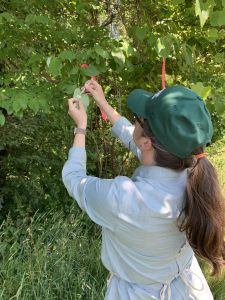
This project includes trapping and behavioral studies of BMSB on apples and monitoring and augmentative releases of the parasitoid Trissolcus japonicus (with the Szucs Lab). This work is funded by a USDA-NIFA SCRI Coordinated Agricultural Project, MSU Project GREEEN, and grants from MAC and MSHS.

The goal of this project is to explore a pesticide alternative for a cryptic apple and sweet cherry pest that also affects a variety of cultivated and wild hosts. We are also interested in potential impacts to natural enemies of SJS. This project is funded by MSU Project GREEEN, MCC, and MAC.
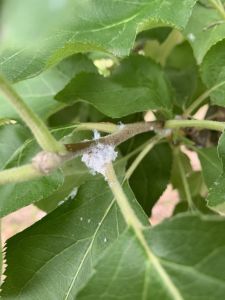
The most important non-insecticidal strategy for managing woolly apple aphid worldwide has been through the breeding of resistant rootstocks. A new ecotype of woolly apple aphid has been discovered in the Netherlands that has overcome this resistance. As part of a collaborative project led by UC Riverside, with Washington State Univ., Penn State, USDA-ARS Geneva, NY, and Wageningen Univ., we will sample woolly apple aphid populations in Michigan associated with different scions and rootstocks to determine whether resistance genes may be found here as well. Funded by USDA SCRI SREP.
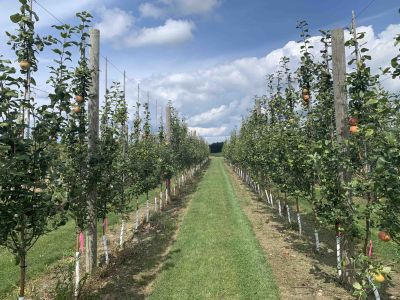
As old apple orchards are removed to make way for more valuable cultivars, apple replant disease can be an issue causing early decline of trees planted into old orchard ground. Trees that are stressed and declining are more vulnerable to secondary pest invasions. The first part of this project was to survey old orchard soils in commercial apple orchards to characterize the baseline microbial community (Bintari et al. 2020). The goal of the second part was to establish an experimental orchard at the Clarksville Research Center to evaluate different pre-plant treatments and apple rootstocks to determine which combinations result in better soil and tree health and productivity in Honeycrisp apples (with T. Einhorn, M. Quintanilla, H. Chung, A. Irish-Brown, and G. Sundin). This project began in 2017 with preplant treatments applied in 2018, and the new orchard planted in the spring of 2019. The 2021 field season was the first year that the orchard was mature enough to harvest apples. It is funded by MSU Project GREEEN, MAC, Michigan Tree Fruit Commission (MTFC), and MSHS.
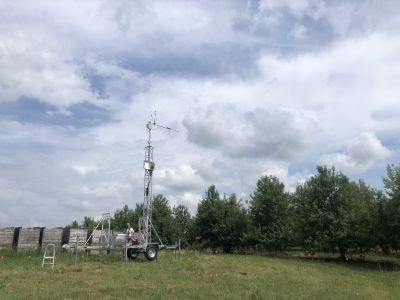
Shallow-rooted non-native grasses are typically planted in between orchard rows to prevent soil erosion and provide traction. The goal of this project is to compare three different deep-rooted native grass mixes as potential substitutes to provide the same functions with the additional benefits of increasing soil carbon sequestration, improving soil health, and decreasing soil compaction. We will be evaluating the economics of this production practice in the context of local and global carbon markets. Grass mixes were sown into an established orchard at CRC and in a new commercial orchard near Bear Lake, MI in spring 2021. We are also interested in cascading effects on above and below ground biodiversity. Seed funding has been provided by Nestle-Gerber via MTFC.
